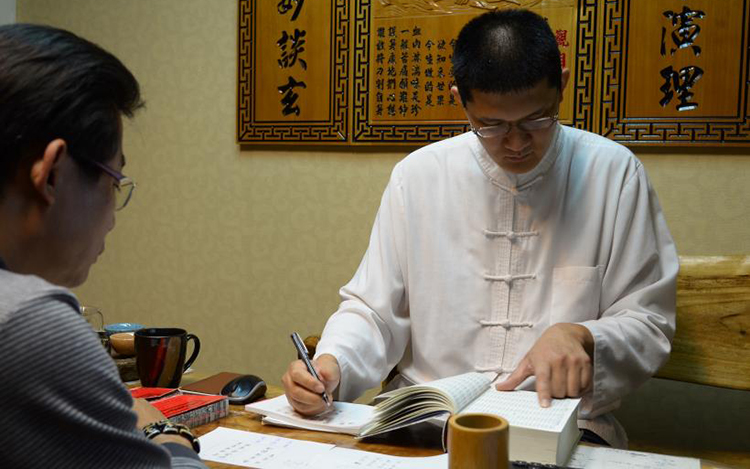万年历黄道吉日 October 1st:A Day of Significance and Celebration

October 1st, a date that holds immense significance across cultures and traditions, is marked not only as the start of a new month in the Gregorian calendar but also as a day of profound importance on the ancient Chinese lunar calendar. This day, often referred to as "Yellow Calendar Lucky Day" or "Lucky Day," is believed by many to be an auspicious time for various activities ranging from personal milestones like weddings and birthdays to significant societal events.
The concept of "Yellow Calendar" dates back centuries, originating from traditional Chinese astrology which assigns specific days as either lucky or unlucky based on the alignment of celestial bodies and their influence on human affairs. These calendars were meticulously crafted by ancient astronomers who observed the movements of stars, planets, and the moon, correlating them with terrestrial events to predict outcomes.
Historical Roots of Yellow Calendar
The Yellow Calendar, also known as the "Huangji Calendar," was first introduced during the reign of Emperor Huangdi (2697–2597 BC), one of China's legendary Five Emperors. It was named after him because it was said he received this knowledge directly from Heaven. Over the millennia, the Yellow Calendar has evolved through various dynasties, each refining its methods and incorporating new astronomical observations.
During the Han Dynasty (206 BC – AD 220), the Yellow Calendar became the official calendar used by the imperial court. It played a crucial role in state affairs, including the scheduling of military campaigns, agricultural activities, and ceremonial events. The precision of these calendars was so revered that they were even used to predict natural disasters and guide governmental policies.
Cultural Significance of October 1st
In modern times, while the Gregorian calendar remains the primary tool for everyday life, the cultural significance of October 1st on the Yellow Calendar persists. Many people believe that starting a new endeavor or making important decisions on this day can bring good fortune and success. This belief is deeply rooted in folk traditions where the alignment of the cosmos is thought to bestow blessings upon those who follow its guidance.
For instance, couples planning to marry might choose October 1st due to its reputation as a "lucky day." Similarly, businesses may opt to launch new products or projects on this day, hoping to harness the positive energy associated with it. Even individuals looking to make significant purchases or embark on personal journeys often consult their Yellow Calendars before committing to any major steps.
Astrological Insights for October 1st

Astrologers analyze the positions of the sun, moon, and planets at the time of birth to provide insights into personality traits, strengths, weaknesses, and potential life paths. When applied to specific dates like October 1st, these principles offer a unique perspective on what kind of energy the day carries.
On October 1st, according to traditional Chinese astrology, the elements and energies are particularly balanced. This balance is seen as conducive to harmony and stability, making it an ideal day for initiating new endeavors or concluding old ones. The combination of celestial influences suggests that whatever one sets out to do on this day will have a smoother flow and better chances of achieving desired results.
Practical Applications of Yellow Calendar Knowledge
Understanding the nuances of the Yellow Calendar extends beyond mere superstition; it provides valuable insights into timing and decision-making. For example:
-
Personal Growth: Individuals seeking personal development might schedule workshops, seminars, or retreats on October 1st to capitalize on the perceived positive energy.
-
Business Strategy: Entrepreneurs could use the knowledge of lucky days to plan product launches, marketing campaigns, or expansion plans, aligning them with the most propitious periods indicated by the Yellow Calendar.
-
Health and Wellness: Practitioners of alternative medicine might recommend treatments or dietary changes on days deemed favorable by the Yellow Calendar, believing that the body’s response to interventions is more effective under certain astrological conditions.
Conclusion
As we approach October 1st, reflecting on its historical and cultural significance offers a deeper appreciation for the enduring legacy of traditional wisdom. While modern society continues to rely heavily on scientific advancements and technological tools, the timeless teachings embedded within the Yellow Calendar remind us of the interconnectedness between our actions and the universe around us.
Whether you view the Yellow Calendar as a fascinating relic of the past or a practical guide for navigating life's complexities, there is no denying its impact on countless lives worldwide. As we celebrate another October 1st, let us honor this rich heritage by considering how its insights might enrich our own lives and contribute to a greater collective well-being.
相关文章

最新评论